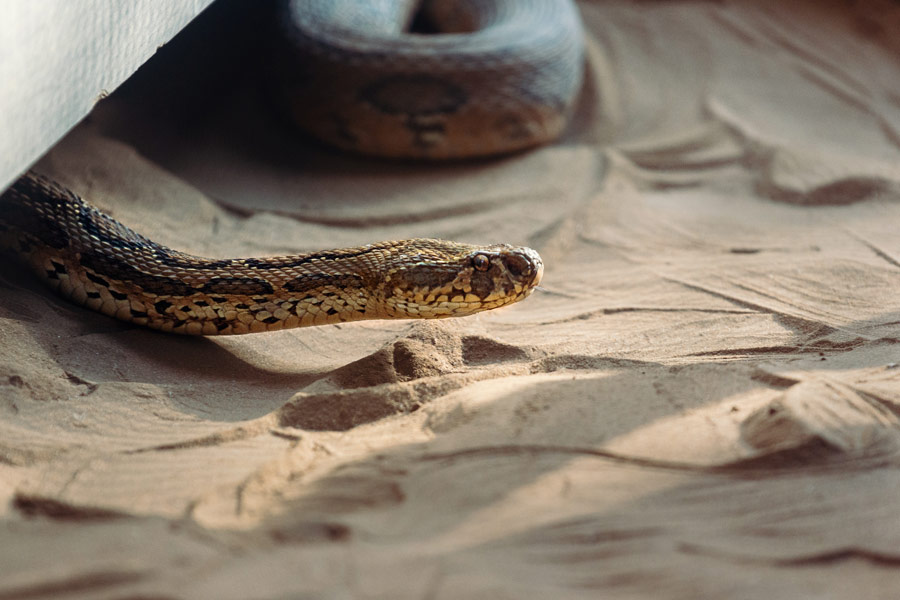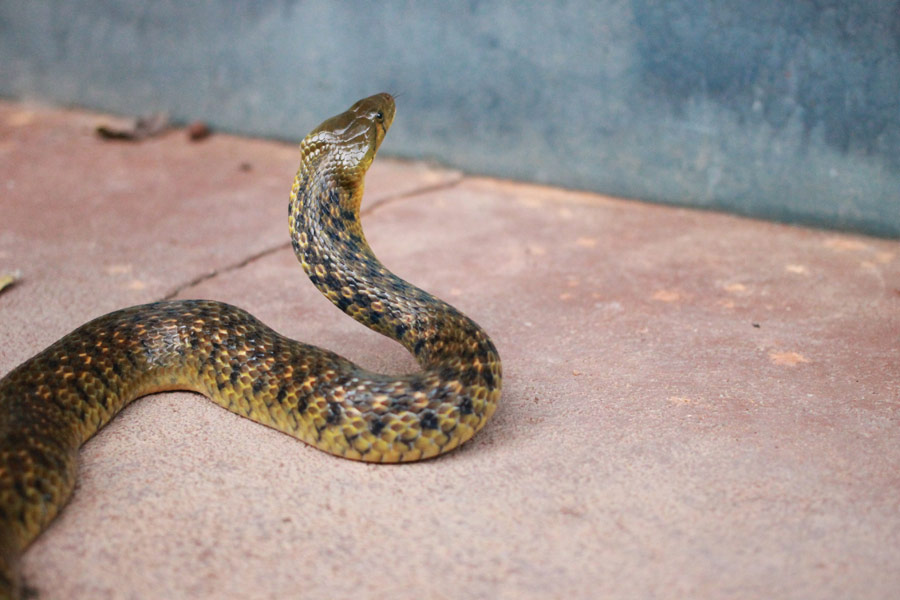While vets are well versed in dealing with snake bites in pets, other pet professionals might not be so sure on what to do in such a situation.
As such, knowing what you can do to protect a pet from snakes — as well as how to handle a snake bite is pretty useful!
Firstly, it’s important to make pet owners aware what times of year snake bites are most common. While the highest incidence of snake bites occur between October and February, encourage pet owners to be vigilant from September right through to March.
You can also pass on some useful hints to help them prevent snakes from slithering onto their property.

Image source: Photo by Tom Houmr on Unsplash
Preventing snake bites in pets
Prevention is always the best cure. These simple tips can help prevent pets from snake bites.
- Regularly mow the lawn to keep it from getting too long
- Keep log piles away from the house, or at least away from the dog’s bed
- Clean up any rubbish (it makes for a good hiding place)
- Keep a look out for shed snake skin
- Keep dogs on a leash in bushland, particularly around the beaches
If a pet owner is out walking their dog and they see a snake on the path ahead they should wait to see if the snake moves away on hearing them. If not, they should give the snake wide birth and be on the look out if they intend to walk back the same way they came.
Even though snakes can only strike a distance of half its body length, if they’re curled up it may be difficult to tell how far it can strike. What’s more, it pays to be cautious.
Signs of a snake bite
Snake bites in pets can occur on the body, face or even inside the mouth, which can make them difficult to detect. Other signs that might indicate a snake bite include:
- Vomiting and salivation
- Lethargy
- Trembling
- Collapse
- Lack of muscle control (in cats)
- Increased, rapid breathing
- Laboured breathing

Image source: Photo by Vivek Doshi on Unsplash
Snake bites: advice for owners
Pet professionals are in an ideal position to discuss the likelihood of a pet getting bitten by a snake and, importantly, advise owners on what to do should it occur.
According to the RSPCA, the chances of a pet recovering from a snake bite are far higher (80%) if he or she is treated early. In fact, some pets make a full recovery within 48 hours. As such, pet owners should be advised to contact their vet immediately (for anti-venom administration) if they suspect their pet has a snake bite.
Aside from this, pet owners can be advised of the following steps:
- Keep the pet calm and quiet
- Apply a pressure bandage to the site of the snake bite to help prevent the venom from spreading to the vital organs
- Do not disinfect the wound
- Do not use a tourniquet
- Don’t try to catch the snake but identifying the type of snake can be useful for vets
Information sources:
Latest posts by Liz Walden (see all)
- Pet health: Medicinal cannabis for pets - December 27, 2021
- What pet business insurance do I need? - November 17, 2021
- Pet sitters: how to take time off - November 15, 2021










Leave A Comment